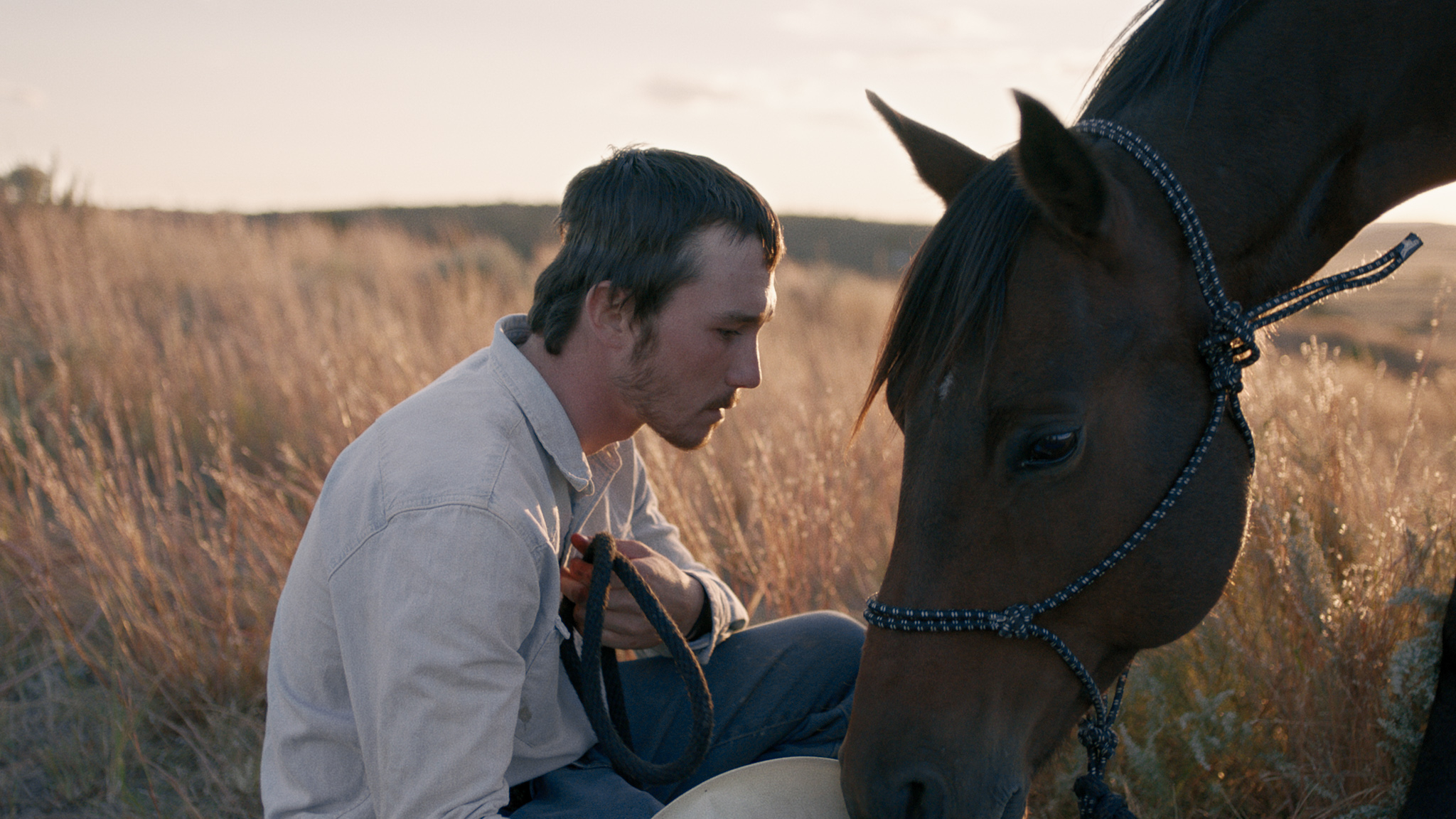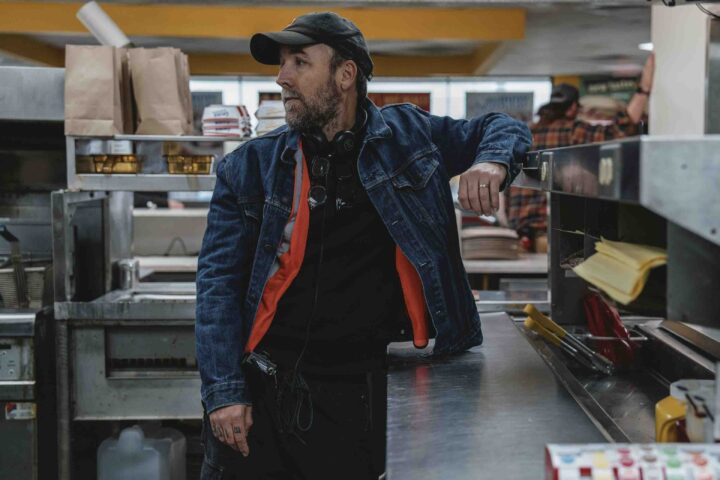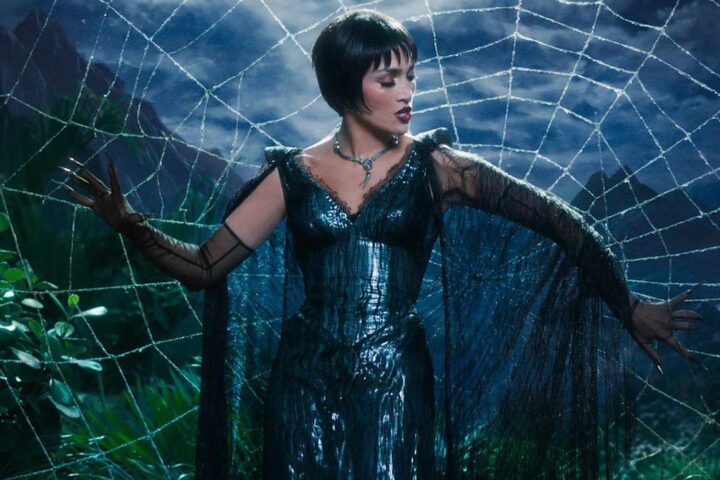In a certain renowned short story, Annie Proulx wrote “The huge sadness of the northern plains rolled down on him.” It was an instant, all-timer passage, and one also describing the best American film released to-date this year. The Rider—an examination of the myth of the cowboy, the anthropology of the contemporary West and a reconciliation dreams versus hard realities—is as essential a piece of American cinema as it is unlikely.
Written and directed by Chinese filmmaker Chloe Zhao and featuring a startling, naturalistic performance from star Brady Jandreau, playing an approximation of himself, it is a movie as simple as elementally powerful, a gripping combination of fact and fiction that tells an intensely personal story while giving us a window into life inside Pine Ridge’s Lakota community.
The Rider gives us a deceptively simple story, that of Brady Blackburn (Brady Jandreau), a former rodeo rider and horse trainer on South Dakota’s Pine Ridge Reservation who, as the film opens, has barely recovered from a traumatic riding accident—his horse trampled his head—that has left him with a brain injury, metal plate in his skull and seizure in his right hand, which causes his fist to clench.
With The Rider, perhaps the more you know going in the better, because Zhao has made a film at least half of which has come from the real life of Jandreau, who himself suffered a similar accident. The film’s other characters, including his hard-drinking and gambling father, Wayne, and autistic sister, Lilly, are played by their real-life counterparts, as well as his circle of friends and neighbors. This gives Zhao’s film a fascinating docu-cultural dimension, placing it in a realm of authenticity that makes for a rich sociological and personal document.
The picture begins with Brady post-accident and as he wakes up in the cold early morning and looks at himself in the mirror—the incision on the right side of his head still fresh—and he knows his future as a rider and trainer is precarious. Doctors sternly advise against ever riding again. But what else can he do? If there is one thing in your life you love, that defines you, and you can no longer do it—then what?
The plot of The Rider revolves largely around Brady’s reconciliation of his old and new lives. On the verge of losing their family home, Brady takes a job stocking shelves and clerking in the local supermarket, and while his physical condition is on the mend, his heart is wounded. His rough-and-tumble friends provide encouragement and in one lovely scene, a campfire hangout breaks into song.
Perhaps the most important figure in Brady’s life is best friend Lane Scott, also a former rodeo rider, who plays himself and is debilitated in a treatment facility after suffering, the film asserts, a devastating rodeo accident that has left him both paralyzed and unable to speak (in life, Scott was badly injured in a car accident). The sensitivity of their visits together—they are real-life friends—comprise some of the film’s most moving moments.
In the picture’s second half, Brady takes an opportunity to break in a new horse, and Jandreu’s work and communion with the animal is truly astonishing. Zhao, whose prior film Songs My Brothers Taught Me, also shot at Pine Ridge, met the Jandreau family during filming, and after witnessing Brady’s special talent, knew she wanted him in her next movie. Her supposition, she has said, was that if Brady could create a relationship with the audience and camera as he did with the animal, then she’d have something.
In creating The Rider’s partially fictionalized story, she has been firm-handed with non-professional actors, encouraged toward restraint. Jandreau, a wiry, stoic presence who can hold a close-up and would never dare to act, carries the movie in every scene with a naturalism so austere that when his emotions finally threaten to break in a marvelous late scene where he is alone in a car, the resulting impact is primal.
And while the movie has great sadness in it, there isn’t an ounce of melodrama, particularly in a late section where a new horse named Apollo looks to present deliverance. Instead, Zhao and Jandreau use narrative minimalism to suggest Jandreau’s developing affection for the animal and his hope to finally return to the saddle. Nothing is articulated; everything is expressed.
Zhao has created a movie of moments, not plot, and The Rider is filled with silences and reverence, its creator clearly affectionate for the America of the west, and her widescreen landscapes, whistling grass and elegiac shots of plains and sunsets are magnificently atmospheric, even poignant.
The best film of 2018.
4 stars.



